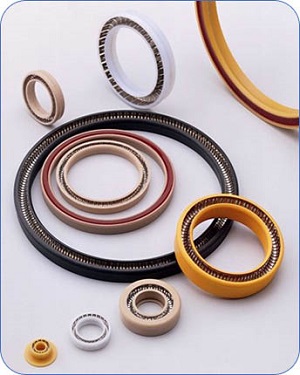On August 28, 2013, at 18:03 UTC, a United Launch Alliance Delta IV with a reconnaissance satellite was launched from the Vandenberg Air Force Base in California. The heavy rocket, which is the most powerful rocket currently flying and known for its delivery of exceptionally demanding payloads, utilized Omniseal Solutions’s OmniSeal® spring-energized seals and Meldin® 7021 bearings within its slip joint system.

The satellite was identified as the NROL-65 by the US National Reconnaissance Office due to its classified payload. The NROL-65 object achieved a low-Earth, sun-synchronous orbit, typical for imaging satellites and the type of launches conducted at Vandenberg site versus geosynchronous orbits that are used by broadcast satellites. Capable of putting a 25-ton payload into low Earth orbit, the three-booster Delta-IV rocket released the classified payload into its target orbit within the first lap around the Earth, marking this flight a success. The launch marked the 364th Delta flight since the start of the program in 1960 and was the 7th launch of a Delta IV Heavy.
The seals and bearings were custom designed and manufactured by the Seals Group at their Garden Grove, California, and Bristol, Rhode Island, facilities respectively. Their OmniSeal® spring-energized seals handle extreme pressure conditions ranging from vacuum to several hundred PSI (a hundred bar) and temperature conditions ranging from cryogenic to many hundreds of degrees. Examples of their other seal applications for the space industry include rocket engines, valves, turbo pumps, connections within systems, and fuel and oxidizer lines.
Meldin® 7021 material was specifically chosen to be the bushing material due to effectively handling the demanding temperature swings as well as operating with smooth efficiency during the launch sequence. This material is also found in many demanding applications due to meeting high heat, friction, and rigidity requirements at elevated temperatures. The Seals Group has been the main supplier of sealing and polymer solutions for a majority of the rockets launched in the past fifty years or more; thousands of seals were used in the Space Shuttle, other spacecraft and the International Space Station.
For additional information about the launch or other Seals Group space news, please visit www.nasaspaceflight.com/2013/08/ula-delta-iv-h-launch-nrol-65/ Vandenberg Air Force Base or www.seals.saint-gobain.com.